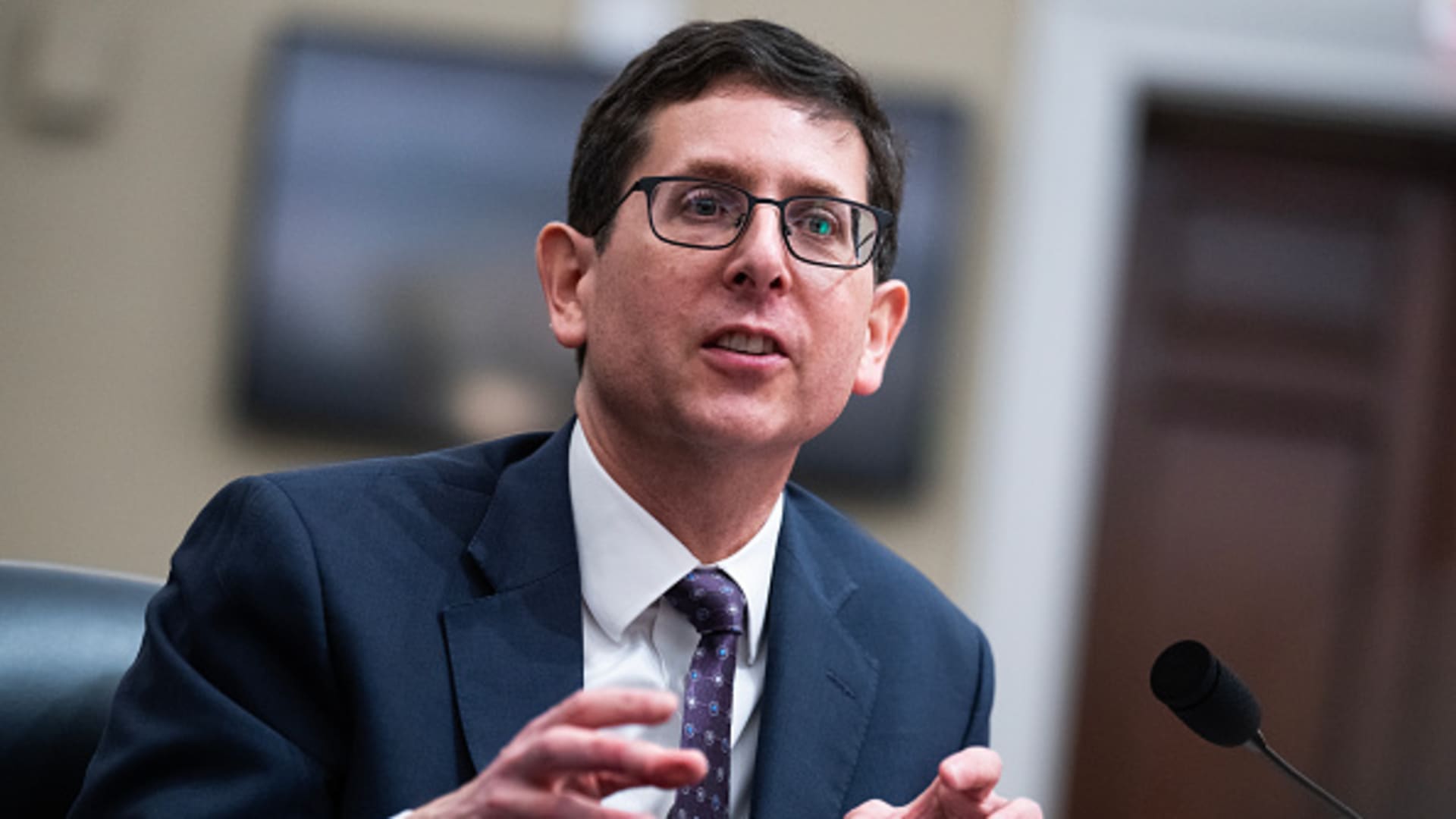CBO Director Phillip Swagel testifies during the House Budget Committee hearing entitled “The Congressional Budget Office’s Budget and Economic Outlook” on Wednesday, February 14, 2024, in the Longworth Building.
Tom Williams | Cq-roll Call, Inc. | Getty Images
The director of the nonpartisan Congressional Budget Office warned House Democrats on Wednesday that the ballooning national debt and the cost of paying interest could pose an existential threat to the U.S. economy.
“Rising interest costs will crowd out other uses of government resources and then also pose a risk to our economic stability in the coming decade,” CBO Director Phillip Swagel told the Budget Committee at a hearing on Capitol Hill.
Swagel’s testimony centered on the CBO’s semi-annual report on the federal budget and economy released Feb. 7.
The CBO report predicted that the annual U.S. budget deficit would grow by an estimated $1 trillion over the next decade. The deficit, expected to be $1.6 trillion in fiscal year 2024, will grow to $2.6 trillion in 2034, according to the analysis.
The report also predicted that net interest rates as a percentage of gross domestic product will exceed non-defense discretionary spending in 2024, rising to 3.9% in 10 years.
Swagel said high interest rates, an aging population and rising federal health care costs are all contributing to the growing national debt, which is expected to rise to a record 116% of GDP by the end of 2034.
“Under current law, there would be insufficient funds to pay the promised Social Security benefits in 10 years,” Swagel said.
Republicans on the committee were pleased with the CBO’s findings that the Fiscal Responsibility Act of 2023 helped reduce the deficit slightly. The bipartisan bill to raise the debt ceiling in exchange for federal spending caps was negotiated by former Republican House Speaker Kevin McCarthy, who subsequently lost his position as speaker.
Dan Kildee, a Michigan Democrat, said changes to the tax code that raise more revenue are needed to reduce the deficit, and he criticized former President Donald Trump’s tax cuts that largely benefited the rich.
“To reduce our deficit, we need to keep an eye on the overall budget. We can’t just cut programs that are important to families, seniors and children,” Kildee said.
Swagel said a key finding of the latest report is the likely impact of an increase in immigration on the U.S. economy.
“Immigration would boost our economy, our workforce would be higher, which means our income would be higher, our production would be higher, and that in turn would generate additional tax revenue,” Swagel said.
According to the CBO report, higher net immigration will result in about $7 trillion in GDP growth over the next decade and increase government revenue by about $1 trillion, which would otherwise have been the case.
He also noted that immigration involves higher expenses and said new immigrants typically flee to lower-productivity industries, which can lead to lower wages on average.
The next deficit update will come later this year, and Swagel told lawmakers it will consider President Joe Biden’s proposed budget and any new laws passed by Congress.
Source link
2024-02-14 21:28:19
www.cnbc.com







